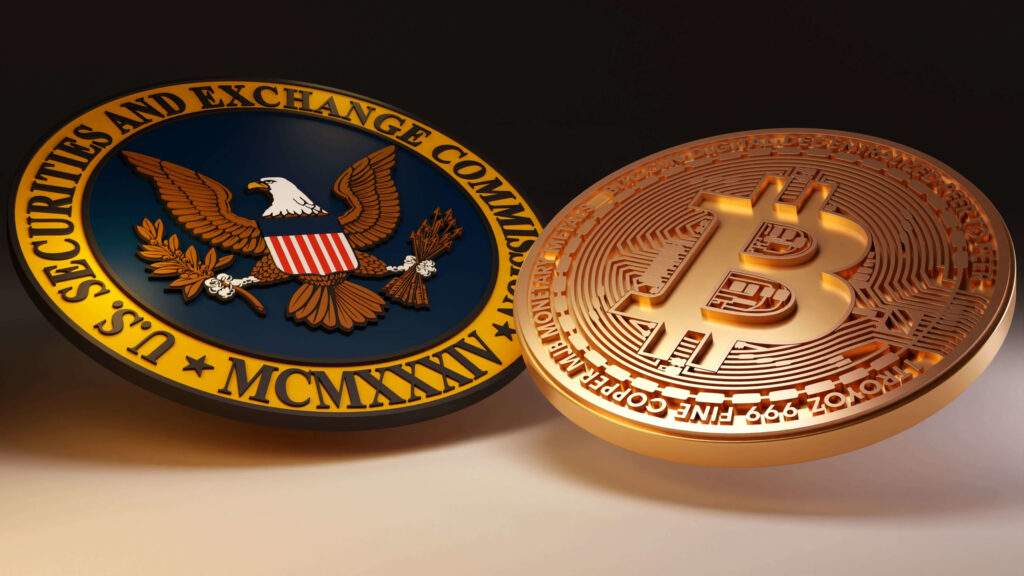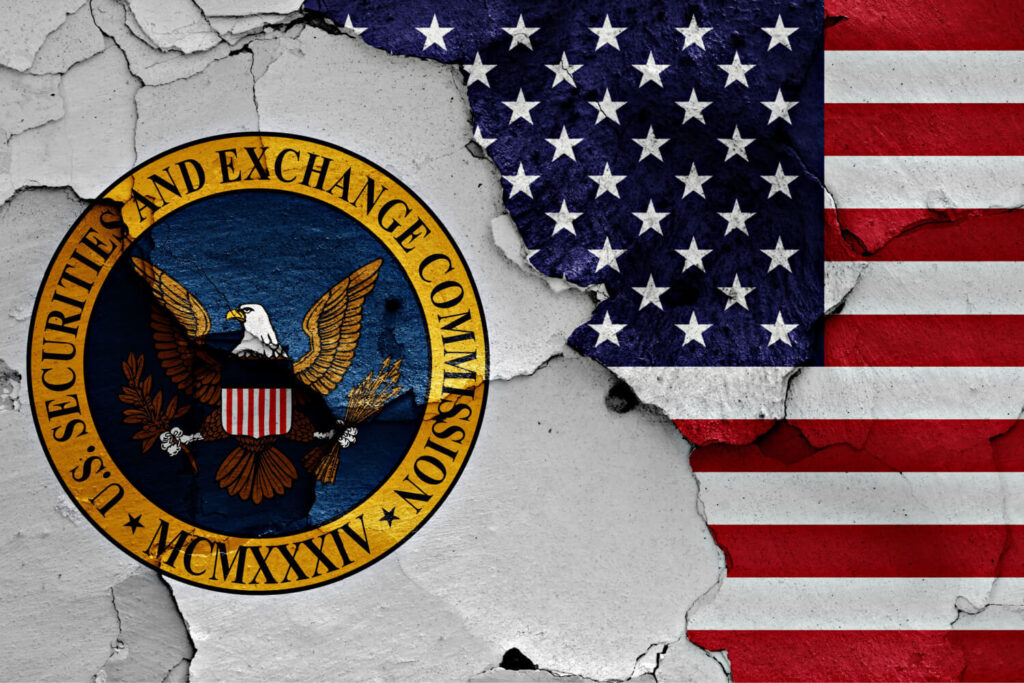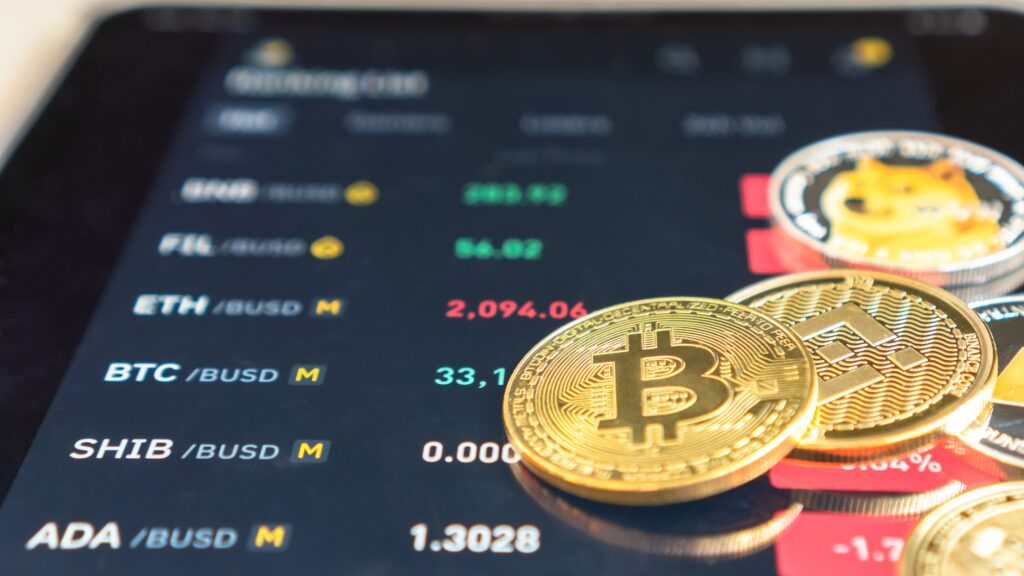
Could a Crackdown on Staking and Stablecoins Boost Bitcoin?
The crypto industry, which has always existed on the fringes of traditional finance, is now facing a new challenge as the US SEC has gone on a fresh offensive, targeting staking-as-a-service providers and the widely used stablecoin, BUSD.
While regulations are necessary for the industry’s long-term success, excessive government intervention could stifle innovation and growth, but it can also have unexpected side effects.
As the debate rages on, it remains to be seen how the Biden administration’s actions will shape the future of crypto.
With the latest regulatory crackdown on cryptocurrency affecting such prominent industry names as Kraken, and now stablecoins like Binance’s BUSD, many are concerned that more will be impacted.
Only time will tell how the situation will evolve and how the industry will adapt to the changes, but many are anticipating further pressure on stablecoin and staking-as-a-service providers.
Could a continued crackdown lead to a rise in OG cryptocurrencies such as Bitcoin? Few expect the capital locked up in stablecoins intends to exit the market, and if that’s the case, many expect much of this dry powder is set to blow in the direction of Bitcoin if regulatory pressure on stables and other forms of innovation grows.

SEC Vs Kraken
On January 23rd, the major league cryptocurrency exchange, Kraken, agreed to pay $30 million in fines and cease to offer its US cryptocurrency staking service in order to resolve the accusations made by the U.S. Securities and Exchange Commission that it neglected to register the program as a security.
The SEC chairman, Gary Gensler said in a tweet that the SEC was charging Kraken for the unregistered offer and sale of securities through its staking-as-a-service program. He stated that ‘whether it’s through staking-as-a-service, lending, or other means, crypto intermediaries must provide the proper disclosures & safeguards required by our laws’.
Gary Gensler has expressed on multiple occasions that he believes a majority of cryptocurrencies, with the exception of Bitcoin, are considered securities.
Kraken’s CEO Dave Ripley had argued five months ago in a Reuters report that he had no plans to register the company’s tokens because he didn’t see them as securities.
The Howey Test is employed to identify securities and comprises four components used to ascertain whether an investment contract is considered a security or not. Nevertheless, there is still uncertainty among crypto companies regarding whether staking services should be classified as securities.
The Battle against BUSD
Gensler’s crackdown on unregistered securities continued when the SEC, in a letter sent to Paxos threatened to sue to company. Paxos Trust Company is a regulated New-York Based firm that issues stablecoins like BUSD. The basis of the lawsuit was that Paxos failed to register Binance USD as a security.
A few hours after, the New York Department of Financial Services (NYDFS) ordered that Paxos should stop issuing BUSD to its customers.
The company later declared that it would terminate its association with the Binance exchange over BUSD.
According to CoinMarketCap, there are roughly 15 billion BUSD in circulation, making it the third-largest stablecoin globally. Despite its branding as Binance USD, Binance is neither responsible for issuing nor redeeming the token. Nonetheless, BUSD represented approximately 40% of last month’s trading volume on the Binance exchange.
Binance affirmed that the market capitalization of BUSD would “only decrease over time.” The exchange also stated that it would be “reviewing projects in certain jurisdictions given ongoing regulatory uncertainty.”
What is the SEC trying to achieve?
Appearing on CNBC’s Squawk Box on Feb. 10, Gensler said crypto exchanges should register with the SEC in order to be compliant with regulations in the U.S., claiming that many within the industry were “choosing” not to do so. He claims that all his agency is trying to do is protect investors’ interests.
But could he be going about it the wrong way?
The United States Securities and Exchange Commission (SEC) Commissioner, Hester Peirce, has openly criticized her own agency’s decision to close down Kraken’s cryptocurrency staking program in the United States.
In a statement posted on the SEC website, Hester argued that regulation by enforcement is not an efficient or fair way of regulating an emerging industry.
Coinbase CEO and Co-founder showed his support for Hester’s statement and added that the SEC didn’t provide a clear set of rules and actions to be taken in order to register such services as securities.
Will Bitcoin take off in 2023?
There is an old saying that goes ‘behind every challenge is an opportunity for growth’. And this has been a constant trend in the crypto industry since its very inception.
This setback for stablecoins like BUSD presents enormous opportunities for other cryptocurrencies as the capital seeks a new home.
According to Jacob Joseph, a research analyst at CryptoCompare, the tracking of crypto transactions data revealed that BUSD owners had started moving their holdings to Tether, the largest stablecoin in the industry.
Although, there has been no action against Tether by regulators, Ran Neuner, a crypto analyst stated in a Twitter post that ‘if the SEC decides to attack all of the USD-backed stablecoins, over $100bn will be forced to exit the market or move into other crypto assets. Investors probably won’t exit, so the money will probably flow into Bitcoin & Ethereum causing a huge pump’.
As the popular saying suggests, “history doesn’t repeat itself but it often rhymes,” we are now witnessing a similar situation to what occurred in China back in 2017.
In that year, the Chinese government cracked down on crypto exchanges, resulting in their forced shutdown and a significant decline in the value of Bitcoin.
However, the value of other cryptocurrencies such as Ethereum, Ripple, and Bitcoin Cash increased during this time as investors sought out alternative investments. The price of Bitcoin later made a full recovery going on to hit a new all-time high before the end of that year.
The crypto staking crackdown may have taken its toll on Bitcoin, but there are reasons to be optimistic, as indicated by on-chain analysis.
As always, this article does not constitute financial advice. You should be sure to research and consult a professional financial advisor before making a major investment decision.
To stay up to date on all things crypto, like Xcoins on Facebook, and follow us on Twitter, Instagram, and LinkedIn.


